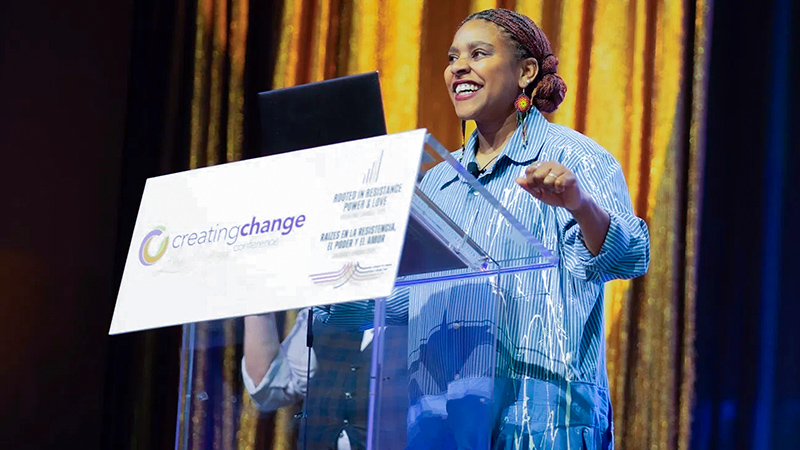Alabama Library Board Bans Transgender Books in Youth Sections
The board’s new rule removes all transgender-related books from children’s and teen sections across Alabama.

The Alabama Public Library Service Board of Directors, which oversees the state’s public libraries, has voted to remove books discussing transgender identities from teen and children’s sections statewide.
On November 20 — which coincided with Transgender Day of Remembrance — the board approved an addition to an existing rule requiring youth sections to be free of “sexually explicit or other material deemed inappropriate.” The amended rule now specifies that materials discussing “transgender procedures, gender ideology, or the concept of more than two biological genders” are inappropriate for library sections aimed at children and teens.
Under the revised language, books addressing transgender existence or identity must either be removed entirely or relocated to adult sections. The change, which takes effect in 2026 after a publication period, will impact more than 200 local libraries in Alabama, reports The Associated Press.
Board Chairman John Wahl, who also chairs the Alabama Republican Party, called the move “a major step forward in putting parents back in control in what their children are exposed to” — echoing language commonly used by “parental rights” advocates.
“We want to put Alabama families in charge,” Wahl said. “We want them to make the decision what is best for their families.”
During a heated public hearing last month, some proponents objected to books teaching children about pronouns or depicting a child’s experience of being transgender. However, it remains unclear whether officials will interpret the rule broadly enough to remove all books with transgender characters from youth sections.
As the Alabama Reflector reports, the amended rule is more expansive than a version previously proposed by board member Amy Minton, which would have removed only books containing positive depictions of “gender ideology” and “transgender procedures.” Wahl argued that material critical of transgender identity should also be barred from children’s sections of libraries.
“I don’t think that was ever the intent that we should be allowing negative content and not positive content,” Wahl said.
Opponents of the restrictions have accused the board of attempting to censor material about transgender identity, which they note is a real phenomenon — despite efforts by conservatives to avoid acknowledging it as valid.
“Most of the people of Alabama have not asked for this latest library-fixated assault on the LGBTQ community,” Jim Vickery told the board during a public comment period.
Minton countered that most comments submitted during the public comment period supported removing or relocating transgender-related books from youth sections.
“This is what the majority of people of Alabama want,” she said.
Supporters also argued that parents who want their children to read about transgender topics can obtain the challenged books elsewhere, including from adult sections of public libraries.
While the board met for the November 20 vote, Mack Reynolds, a transgender man, stood outside holding a sign stating that “positive representation” of transgender people is not the same as sexually explicit material. He told the AP that books are often the best way for people to learn about those who are different from them.
Anti-censorship groups, including Read Freely Alabama, PEN America, Every Library, and the Alabama Transgender Rights Coalition, slammed the amended rule as “overbroad” and “vague,” noting that the term “gender ideology” is not defined. They argued the rule will ultimately result in all books, regardless of content or intended age level, being removed from children’s shelves.
Annie Hayden, a co-founder of Read Freely Alabama, told the AP she believes the board ultimately intends to ban and remove transgender-related materials from libraries. She noted that state regulations prohibit libraries from acquiring youth-oriented books if they have been deemed “inappropriate” for children.
“So [in the] long term they are banning these books, slowly removing these books from your public library,” Hayden said.
Support Metro Weekly’s Journalism
These are challenging times for news organizations. And yet it’s crucial we stay active and provide vital resources and information to both our local readers and the world. So won’t you please take a moment and consider supporting Metro Weekly with a membership? For as little as $5 a month, you can help ensure Metro Weekly magazine and MetroWeekly.com remain free, viable resources as we provide the best, most diverse, culturally-resonant LGBTQ coverage in both the D.C. region and around the world. Memberships come with exclusive perks and discounts, your own personal digital delivery of each week’s magazine (and an archive), access to our Member's Lounge when it launches this fall, and exclusive members-only items like Metro Weekly Membership Mugs and Tote Bags! Check out all our membership levels here and please join us today!




























You must be logged in to post a comment.